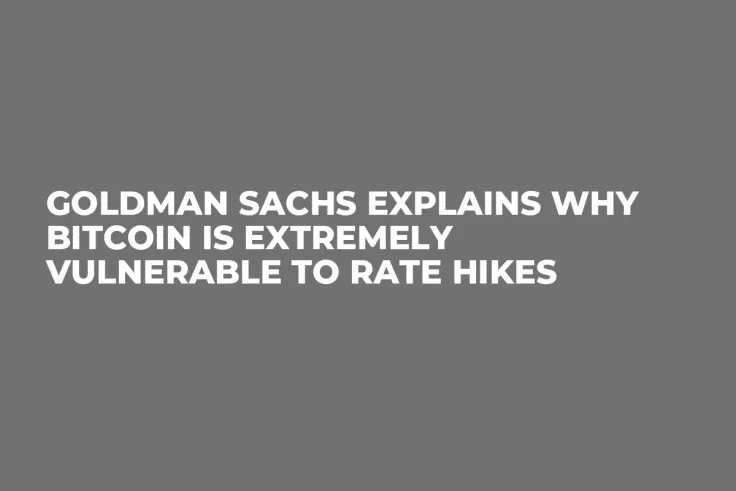
While the idea of reaching mainstream adoption has always been enticing for the cryptocurrency community, it has some downsides.
In a recent research note, a group of Goldman Sachs analysts helmed by Zach Pandl writes that the flagship cryptocurrency's increasing presence in the traditional financial sector has made it increasingly susceptible to macroeconomic factors. This means that the crypto market is now beholden to the monetary policy of the Federal Reserve, which diminishes the asset's supposed diversification properties.
Earlier this month, the correlation between Bitcoin and the Nasdaq Composite index reached a new all-time high, with both cryptocurrencies and stocks enduring a major sell-off. The analysts attribute this phenomenon to the growing mainstream acceptance of cryptocurrencies:
Over the last two years, as Bitcoin has seen wider mainstream adoption, its correlation with macro assets has picked up.
As Goldman points out, Bitcoin and other cryptocurrencies "are not immune" to the Fed's quantitative tightening policy.
As reported by U.Today, the Fed has signaled that it will hike the benchmark short-term interest rate for the first time this March after years of extremely accommodating monetary policy. The CNBC Fed Survey predicts that the central bank is expected to increase rates at least three times this year.
Goldman predicts that the Fed will raise rates at least four times this year while some traders are bracing for as many as five hikes. This, of course, is not expected to bode well for asset prices.
It has been more than three years since the last hike took place in December 2018. The Fed had increased rates nine times over the three-year period from December 2015 to December 2018.

 Vladislav Sopov
Vladislav Sopov Dan Burgin
Dan Burgin